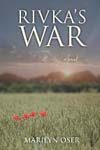Alumni Books
-
Alice’s Sister
by Jessica Young
We have all imagined it—our daytime activities reappear, twisted, in our dreams at night. What, then, drove Lewis Carroll’s Alice to dream of bodily distortions and dangerous adults? What is happening in her waking life to cause this darkness? Reimagined using details from Carroll’s Alice in Wonderland, Jessica Young’s new collection of poems focuses on Alice’s older sister, Mary, and the trouble she faces—the quiet, shadowy disturbances—that affect everyone around. It seems the rabbit hole goes much farther down than we thought. Employing ambitious writing techniques, Young invites us in for the descent.
-
Veiling in Africa
by Elisha P. Renne
The tradition of the veil, which refers to various cloth coverings of the head, face, and body, has been little studied in Africa, where Islam has been present for more than a thousand years. These lively essays were edited by Elisha Renne, professor in the department of anthropology and the department for Afroamerican and African Studies at U-M. They raise questions about what is distinctive about veiling in Africa, what religious histories or practices are reflected in particular uses of the veil, and how styles of veils have changed in response to contemporary events. Together, they explore the diversity of meanings and experiences with the veil, revealing it as both an object of Muslim piety and an expression of glamorous fashion.
-
Judgment on the Front Line: How Smart Companies Win by Trusting their People
by Chris DeRose and Noel Tichy
In the U.S. alone, retail and service workers are estimated to total more than 15 million people, or nearly one-fifth of the domestic commercial workforce. Statistics and common sense tell us that the vast majority of workers are engaged in front-line positions—pharmaceutical salespeople, bank tellers, airline attendants, coffee-shop baristas, truckdrivers, factory line workers, and the like. Despite their vast numbers, most organizations don’t have a clue how to tap into the creativity of their largest group of employees. Judgment on the Front Line examines strategies by an elite group of companies that have enabled their employees to more rapidly address customer problems, anticipate unarticulated needs, and drive customer-facing innovation. Delivering a great customer experience is a fundamental that every company needs to practice, and this unique management book illuminates the organizations that understand the importance (and difficulty) of engaging an organization’s “front line” to deliver on customer strategy. Download Chapter 1, read reviews, and more.
-
Death of the Chesapeake
by Richard Albright
While military munitions sources contribute significantly to the pollution and degradation of Chesapeake Bay, they have been completely overlooked in many of the efforts to restore the Bay.Death of the Chesapeake, Richard Albright’s third environmental book, explores this important aspect of the nation’s environmental health. The book also recognizes for the first time that efforts to restore the Bay have failed because of the violation of a fundamental precept of environmental cleanup; that is, to sample the site and see what’s there. The Bay itself has never been sampled. Thus, this book presents a view of the environmental condition of Chesapeake Bay that is totally unique. It covers a part of the history of the Bay that is not widely known, including how the Bay was formed. It presents a mixture of science, military history, and novel solutions to the Bay’s degradation. In so doing, the author examines the military use of the Bay and reveals the extent that munitions dumpsites containing nitrogen and phosphorus as well as chemical warfare material are affecting the environment. The book concludes with the author’s own cleanup plan, which, if implemented, would go a long way toward restoring health to the Bay.
Notes author Albright: “In college I was a member of the Ann Arbor Amphibians SCUBA Club. One of our members was the American on the three-country team with Jacques Cousteau that developed the aqua lung during WWII. Whenever Jacques would come to the Great Lakes, we would be invited to see his latest movies. Cousteau introduced me to underwater munitions and environmental changes in the oceans. Also, while at U-M, I ran a dive boat out of Port Huron and was part of the team that found the Charles S. Price, a freighter that sank in the great storm of 1913, memorialized by Gordon Lightfoot’s “The Wreck of the Edmund Fitzgerald.”
-
Deadly Secrets
by Boris (Bob) Riskin
Shakespeare-loving detective Jake Wanderman is at it again. In this latest mystery thriller from Boris (Bob) Riskin, Wanderman takes on the Hamptons’ art scene, the local police, and a fiercely determined international drug ring. From Sag Harbor to London to Paris, Wanderman’s a magnet for trouble, all to save his best friend’s daughter from a bogus murder charge. He managed to survive his previous adventures with both his wit and physical skills. InScrambled Eggs, he went to Moscow and dealt with the NKVD.Deadly Bones took him to Jerusalem where he encountered the vicious Russian Mafia. Much like his character, novelist Bob Riskin also has traveled the world. These days he lives and writes in Sag Harbor, “where the bay and ocean are close enough to touch,” he says, “and the air is alive with stories.” His work has appeared in a number of literary journals, as well as The New Yorker. Learn more about his work at robertborisriskin.com.
-
Restraint and Seclusion: Hear Our Voices
by Dan Habib
Dan Habib’s latest film, Restraint and Seclusion: Hear Our Voices, is now available for viewing at the Stop Hurting Kids campaign website. Dan is a filmmaker at the Institute on Disability at the University of New Hampshire, and creator of the films Including Samuel and Who Cares About Kelsey? In Restraint and Seclusion: Hear Our Vioices Jino Medina, Brianna Hammon, Peyton Goddard, and Helena Stephenson describe the restraint and seclusion they experienced while students in public schools, and the devastating physical and emotional injuries they suffered as a results. There is no cost to view or download the 28-minute film, and it will be available indefinitely. Dan encourages people to use the film for public awareness, professional development, teacher training, or any other purpose that does not involve charging a fee. The free distribution of the film is possible thanks to support from the U.S. Substance Abuse and Mental Health Services Administration (SAMHSA).
-
Rivka’s War
by Marilyn Oser
Can a woman fight successfully on the front lines?
In Russia, in 1917, when demoralized soldiers were deserting their posts in droves, one enterprising woman recruited an all-female battalion to set an example for the men. It was an experiment that combined the ideal of pure womanhood with the grittiness of trench warfare and the vision of a good death. Rivka’s War tells the story of this battalion—and more—through the eyes of a Jewish girl, daughter of a bootmaker.
Prize-winning author Marilyn Oser learned of the women’s battalion while researching unusual careers of women throughout history. The novel portrays the formation and destruction of this dedicated group, known as the Battalion of Death. “World War I was a disastrous war,” Oser says. “It ended in a disastrous peace, the consequences of which are still being felt today. Its effect on Jewish life at the time has not often been written about, yet in Eastern Europe and in Palestine that effect was profound.” Panoramic in scope, the novel follows 13-year-old Rivka from a shtetl in the Ukraine in the summer of 1914, to Eastern Front battlefields in the grip of revolutionary fervor; from there, across the steppes of war-torn Siberia; and finally to Palestine in the fall of 1918, site of history’s last great cavalry attack and first great air attack.
Marilyn Oser lives in New York’s Hudson Valley and on Long Island. A PhD in language and literature, she has taught English and history and has raised funds for arts, environmental, and community organizations. Author of the novel Playing for Keeps and the blog Streets of Israel, she is a recipient of the University of Michigan’s coveted Avery Hopwood Prize for excellence in writing.
-
Directional Sense: How to Find Your Way Around
by Janet R. Carpman and Myron A. Grant
Were you born with no sense of direction? Does the mere thought of navigating twisting hospital corridors, deciphering cryptic expressway signs, or fumbling with cumbersome maps fill your heart with dread? If so, you need this trusty guidebook, which explains that finding your way around is a learnable skill, not a mysterious instinct you’re doomed to live without. A lighthearted introduction to the ins and outs of wayfinding, it provides step-by-step guides to following signs, reading maps, recognizing landmarks, using GPS devices, and more. Along with anecdotes describing how everyone gets lost at times, and photos showing how being turned around is not always your fault, Directional Sense offers a wealth of practical advice to help you confidently get from here to thereMdash;and back. Learn more about the book and “wayfinding consultants” Carpman Grant Associates.
-
The Cineaste
by A. Van Jordan
This luminous new volume of narrative poetry takes us to the movies—from Metropolis to Blazing Saddles—and uses each film to meditate on issues of race, growth, identity, and memory. At the collection’s center is a sonnet sequence in the voice of filmmaker Oscar Micheaux, where Jordan struggles with the disjuncture between the ugly racism and powerful artistic achievements of D.W. Griffith’s The Birth of a Nation. Jordan is an award-winning author of three previous volumes of poetry in which he weaves multiple personnas, fragmented worlds, and multiple art forms together in a single voice that is entirely his own. In Rise (2001), winner of the PEN/Josephine Miles Book Award, Jordan harmonized with musicians: blues lyrics and field hollers infused and shaped his lines; jazz supplied a lustrous ambience via such heroes as Ellington, Davis, and Monk. In M-A-C-N-O-L-I-A (2005), which won the Anisfield-Wolf Award, he spelled along with 1935 teenager MacNolia Cox, the first African-American finalist of the National Spelling Bee Competition. In Quantum Lyrics (2007), the world of Jordan’s poetry became a multiverse populated by physicists and comic book superheroes alike. Jordan, who has also been awarded a Whiting Award and a Guggenheim Fellowship, lives in Ann Arbor and is a professor at U-M.








